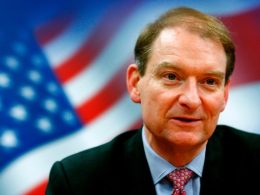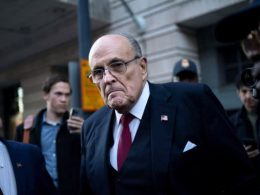What if the total sum of wealth in the world was immediately and simultaneously redistributed equally among the six billion adult people in the world? — Bezz
UBS’s Global Wealth Report puts global wealth at around $450tn, which would mean each adult would get about $75,000. On the day that your proposal goes into effect, five million people would be just a day too young — 17 years and 364 days old — to receive their money. That’s a tough break for them and a strangely invidious situation for such an ostentatiously egalitarian policy.
There are some intriguing practicalities, too. Let’s say you own your own home outright, and that it’s worth $375,000, or five times your share of global wealth. What to do? After the redistribution, you own only 20 per cent of your dwelling, and four other people own the other 80 per cent. Tricky. Now you have to pay rent to a nice family of four who live in Turkmenistan. It might feel awkward but that’s equality for you.
Let’s say the annual rent is 5 per cent, that’s $3,750 each, a little more than one-third of Turkmenistan’s GDP per person. That’s a lot of money to each of our Turkmen friends but not enough to turn Turkmenistan into Switzerland, nor indeed Switzerland into Turkmenistan.
Whether the redistribution would be enforceable is a nice question. I could easily imagine that some people might refuse to send such large sums to complete strangers, and I could less easily imagine the global taxman who is going to insist that they do.
Even if the redistribution goes off smoothly and payments are made in good faith, global wealth will not remain equally distributed. Quite apart from all those people turning 18 just a day or so too late, and those who die, leaving wealth to be inherited or redistributed, people will make choices: some will spend the money, others will invest it, still others may give it away. And people will keep earning money at vastly different rates.
So one question will weigh heavily on everyone’s minds: when is the next instantaneous redistribution going to happen?
What if tax were levied on leisure time? Governments looking to stimulate the economy would cancel weekends, while those looking to quieten the economy would issue new bank holidays. — Duncan Ogle-Skan
It is intriguing that you view tax exclusively as a way of smoothing the economic cycle. That is hardly the most important role of government. Most people expect their taxes to pay for public services, too. But we can build on your proposal by insisting that tax be levied in time rather than money. Citizens could be obliged to work two days a week as a teacher, police officer or parliamentary private secretary, and, as you suggest, economic fluctuations could be smoothed out by expanding or reducing this obligation.
There is the question of efficiency: a partner at a corporate law firm could easily pay enough tax to hire two or three teachers, but if “taxed” in kind she could only contribute the labour of a part-time teacher. Nor would she have the experience or training of a teaching specialist. On the other hand, public-sector and private-sector workers would be the same people, which might at least foster mutual comprehension. There are worse ideas in the world . . . as we shall see.
What if interest rates were controlled by the net run rate in a never-ending cricket match between the Treasury and the Bank of England? — Sam Mugford
The net run rate measures the speed at which one cricket team has scored, minus the speed at which the opposing team has scored. In a never-ending game we could take the net run rate across the last 10 innings. (If we average over a longer period the NRR would be slower to change; a shorter period gives more fluctuation.)
Central bank rates influence the everyday interest that banks charge borrowers and pay to savers. They help to prevent both inflation and recessions by fine-tuning economic activity, making it more attractive to spend money or to save it.
If official interest rates are set by a cricket match rather than a committee of experts, it seems less likely that they will perform this role. Maybe the economic cycle will be wilder.
Then again, I had assumed that, given this set-up, interest rates would randomly fluctuate around an average of zero. When I tested this assumption with an economist at the Bank of England, they saw the situation differently: surely if the bank wished to raise interest rates they would recruit some professional cricketers?
What if Trump/Musk fires Jay Powell and makes DogeCoin the official currency of the US? — MJFW
What if Bitcoin actually got adopted as the only way of paying for coffee? — Moonlight Hanger
Bitcoin and DogeCoin have been amazing investments. (This is hindsight, and very much not financial advice.) Bitcoin has risen in price from a few cents, to a few dollars, to hundreds of dollars, to tens of thousands of dollars. One DogeCoin has risen from fractions of a cent to — in the wake of the election — more than 30 cents.
All these statements were true when I typed them; whether they are true as you read them is quite another thing, because Bitcoin and DogeCoin have been absurdly volatile.
This poses a problem for anyone who fancies using a cryptocurrency as, um, currency. A fundamental feature of any currency is that its value needs to be stable. Inflation of 10 per cent is manageable: annoying but not confusing. Inflation of several hundred per cent is bewildering. So, for that matter, is the dramatic deflation implied by the rising price of Bitcoin and DogeCoin relative to everything else. If both your salary and the coffee were denominated in DogeCoin, it would be very difficult to figure out what the real price of anything actually was. You’d find yourself referring back to something else in an attempt to understand where you stood.
What might provide this reference point? When official currencies have been unstable people have tended to use easily identifiable commodities as the standard of value, such as salt, cigarettes or coffee. This isn’t barter as such, but an attempt to find a firm mooring in a tempestuous sea of churning prices.
Instead of salt or coffee, the dollar itself might remain an attractive standard . . . if it continues to exist. There are countries in the world where the dollar is not the official currency, but it is the unofficial standard of value. In the world you envisage, perhaps the US will become one of them.
A “Hasbro Top-Hat” conference establishes Monopoly money as the new international monetary standard with numerous national currencies pegged. “Black hat guy” is now the world’s banker . . . — Alex Ray
Would Monopoly money be a better currency than DogeCoin? Unclear. Recall that what we really want from a currency is stability, but Monopoly money is potentially subject to inflation or deflation as money enters or leaves the game.
Most of the action in Monopoly is neither inflationary nor deflationary: buying property drains money from the game in the short term, but there is only a fixed quantity of property to buy, so that’s a temporary matter. Paying rent to other players just moves money around the board.
But there are ways in which money can be permanently added to or drained from the game, mostly through the Tax squares, paying a fine to leave Jail and of course by passing Go. Board-game enthusiast Malcolm Wardlaw, building on calculations by Truman Collins, reckons that every roll of the dice can be expected to add $28-$30 to the game. Given that each player starts with $1,500, this means that the money supply would double after about 50 rolls per player, roughly the duration of a game. This must surely be a contender for the most hyperinflationary economy in history, as even Hungary’s infamous postwar hyperinflation only saw prices doubling every 15 hours. (Monopoly games do not last 15 hours — it just feels that way.)
As for a world in which DogeCoin becomes the official currency of Monopoly, with interest rates set by a cricket match, I may need some time to think through the implications.
Find out about our latest stories first — follow FT Weekend Magazine on X and FT Weekend on Instagram









